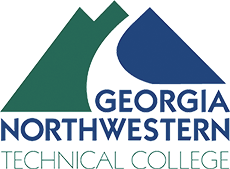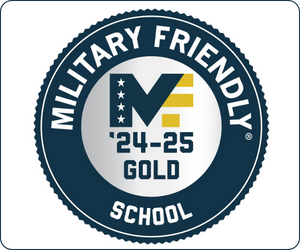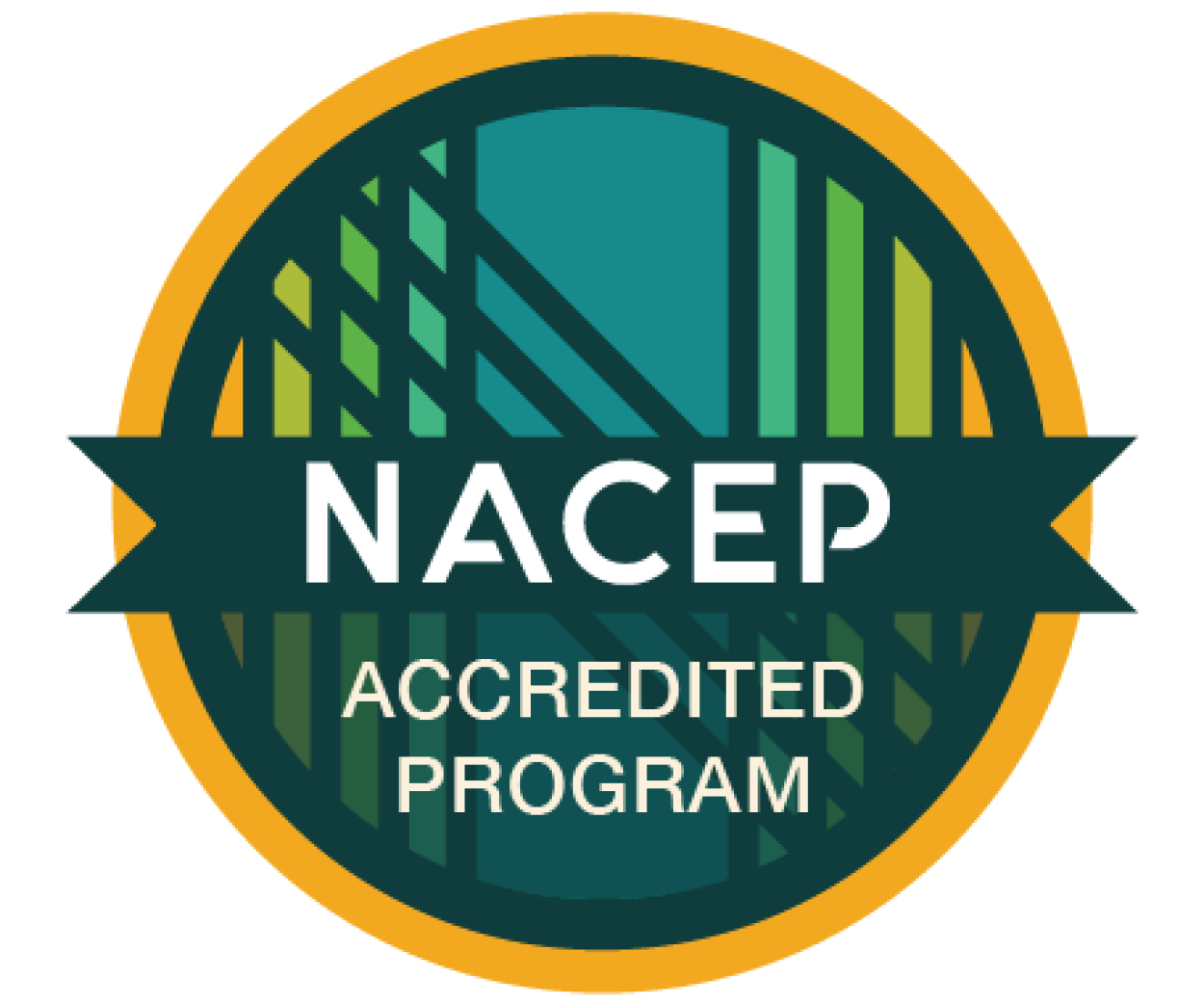GNTC graduate soars in career with Delta
A Georgia Northwestern Technical College (GNTC) graduate is ascending the career ladder at Delta Air Lines in Atlanta.
Delta hired Christopher Poole, a 2020 graduate of GNTC’s Aviation Maintenance Technology program, as a contractor a few months after he received his diploma. By December 2021, Delta had hired him permanently as an aircraft support mechanic and a few months later would promote him to aviation maintenance technician.
“Aviation Maintenance Technology is an integrity industry,” Poole said. “You always need to do your best and be honest because a lot of people are trusting you. You are responsible for everything on the aircraft engine-related and component-related.”
In addition to maintaining the aircraft’s avionics and flight control systems, technicians also perform routine work, such as changing oils, replacing engine components, maintaining brakes, checking tires, servicing air conditioning systems and troubleshooting.
Poole said he has worked on about 10 different large passenger planes. The smallest, a Boeing 717 seats up to 117 passengers while the largest plane on which he’s worked, a Boeing 767, seats up to 269, according to Boeing.
Poole, 30, attended classes at GNTC’s Aviation Training Center at the Richard B. Russell Regional Airport in Rome. He appreciated the rigorous requirements of the classes, which are regulated and certified through the Federal Aviation Authority.
“If you are not on time—even if you are only a minute late, you have to make up an hour,” Poole said.
Born in New York, he has called Hiram his home since age 8. He is married and a father of three children ages 10, 8 and 2.
“I sold cars for about six years and didn’t get to spend much time with my kids,” he said. “I got interested in this career when I spoke with a customer who was an aircraft maintenance technician. I talked to a family friend in the same field to learn more and then enrolled at GNTC.”
Poole faced a financial hurdle after giving up his job selling cars to go to college. He said GNTC’s Workforce Innovation and Opportunity Act Program stepped in so that he could stay focused on his classes.
The Workforce Innovation and Opportunity Act Program (WIOA) is a federally funded work training program that assists students who meet both eligibility and suitability requirements. Eligible students learn new skills for tomorrow’s workforce.
“WIOA gave me gas money to go to classes, provided for childcare and paid for all of my tools. The tools cost about $4,000,” he explained. He is grateful that he got to attend GNTC and that the WIOA program helps students like him change their careers and their lives.
“GNTC took real good care of me and prepared me to stand on my own two feet,” he said.
His instructors at GNTC taught him how to focus, navigate maintenance manuals to troubleshoot, fix issues and pay attention to details in a fast-paced field, he said.
“I love working with my hands and problem-solving issues,” Poole said.
Mike Bunn, duty manager for Department 261 at Delta, supervises Poole. The department performs line maintenance at night and supports C-checks, which assess an aircraft's functionality and serviceability at the time of the inspection, on Boeing 717s.
“Mr. Poole is one of my highest performing new mechanics,” Bunn said.
Poole has the aptitude, right attitude, basic knowledge and work ethic to take himself wherever he wants in the aviation industry, Bunn said, adding Delta is “lucky to have him on our team.”
Poole is proud he landed a job at Delta. “Delta is a phenomenal workplace,” he said, adding that the company provides a great workplace atmosphere, looks out for its employees and invests in training new hires.
Delta’s commitment to technical education and nurturing the talent of future aviation maintenance technicians runs deep. The company is an official national partner of SkillsUSA, an organization that supports middle-school, high-school and college/postsecondary students preparing for careers in trade, technical and skilled service industries.
The Delta Air Lines Foundation has provided millions in grant funds to support education, including to Aviation Maintenance Technology programs at colleges in the Technical College System of Georgia (TCSG). The Delta TechOps (Technical Operations) division works with select technical colleges to train and identify future aviation mechanics.
The need for aviation mechanics is so great that TCSG lists Aviation Maintenance Technology as one of Georgia’s high demand career fields.
“High demand career fields represent the occupations in each of Georgia’s key industries that are in-demand, pay an above-average entry-level wage and are considered strong options for pursuing a successful career in Georgia,” said Dr. Heidi Popham, GNTC president. “These occupations are critical to these industries’ success and Georgia’s economic health.”
These career fields are identified by the State of Georgia and reflect areas within the workforce where there are often more open positions than there are skilled workers to fill them, Dr. Popham explained.
Since the late 1990s, there have been more workers in Aviation over age 60 than under age 30, said Jon Byrd, executive director of Aviation at GNTC and Technical College System of Georgia (TCSG) state Aviation advisor.
“The pandemic and employees taking early retirement escalated the shortage,” Byrd said. “As a result, companies employ two, sometimes three, new workers to replace one that retired.”
Bunn agreed. He said Delta also lost a lot of mechanics during the COVID pandemic and to an early retirement package.
Besides airlines, aviation maintenance facilities, corporate aviation departments, charter companies, first responders, flight schools, forestry departments and utility inspection and repair departments need Aviation Maintenance Technicians, Byrd said.
“This a great time for new mechanics to work for the major airlines,” Bunn said.
Wages for technicians vary greatly depending on the employer, facility location and volume of aircraft, Byrd said. GNTC graduates typically earn $21 to $35 per hour as starting pay.
“While there is a lot of responsibility, the rewards can be great,” Byrd said. “The sense of accomplishment, achievement and overcoming challenges—all paired with flight benefits that many companies offer their employees—can make it a very satisfying career.”
Poole said he urges anyone considering Aviation Maintenance Technology as a career to “go for it” and to “be ready to work and focus.”
To meet the needs for Aviation Maintenance Technicians and other high demand careers, GNTC is expanding course offerings by adding more sections and evening courses at some campuses, utilizing career fairs and open houses to expose secondary-school students to these career fields and working with industry partners to share information about apprenticeship programs and available funding, Dr. Popham said.
GNTC students who wish to pursue Aviation Maintenance Technology or another of Georgia’s high-demand careers may be eligible for a grant to pay 100% of tuition costs for select in-demand diploma and technical certificate programs. To be eligible for the HOPE Career Grant, students must first qualify for and be receiving the HOPE Grant. The two grants together will cover tuition.
Students must meet HOPE Career Grant eligibility requirements and pay the remaining costs of college fees, books and materials each semester.
Georgia Northwestern Technical College provides quality workforce education to the citizens of northwest Georgia. Students have the opportunity to earn an associate degree, diploma or a certificate in aviation, business, health, industrial or public service career paths. This past year, 11,601 people benefited from GNTC’s credit and noncredit programs. GNTC has an annual credit enrollment of 8,071 students and an additional enrollment of 3,530 people through adult education, continuing education, business and industry training and Georgia Quick Start. GNTC is a unit of the Technical College System of Georgia and an Equal Opportunity Institution.
# # #

|
Marketing Media Specialist
|



